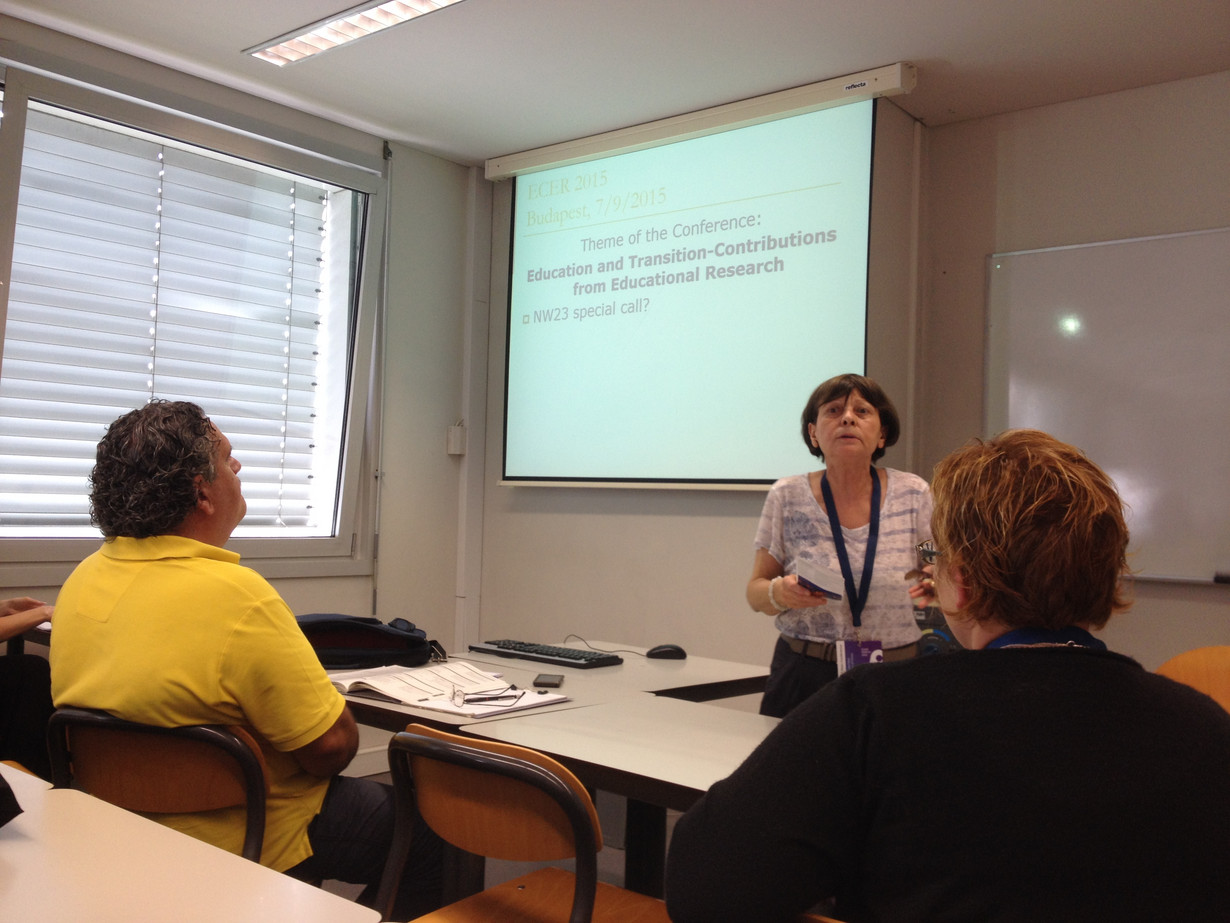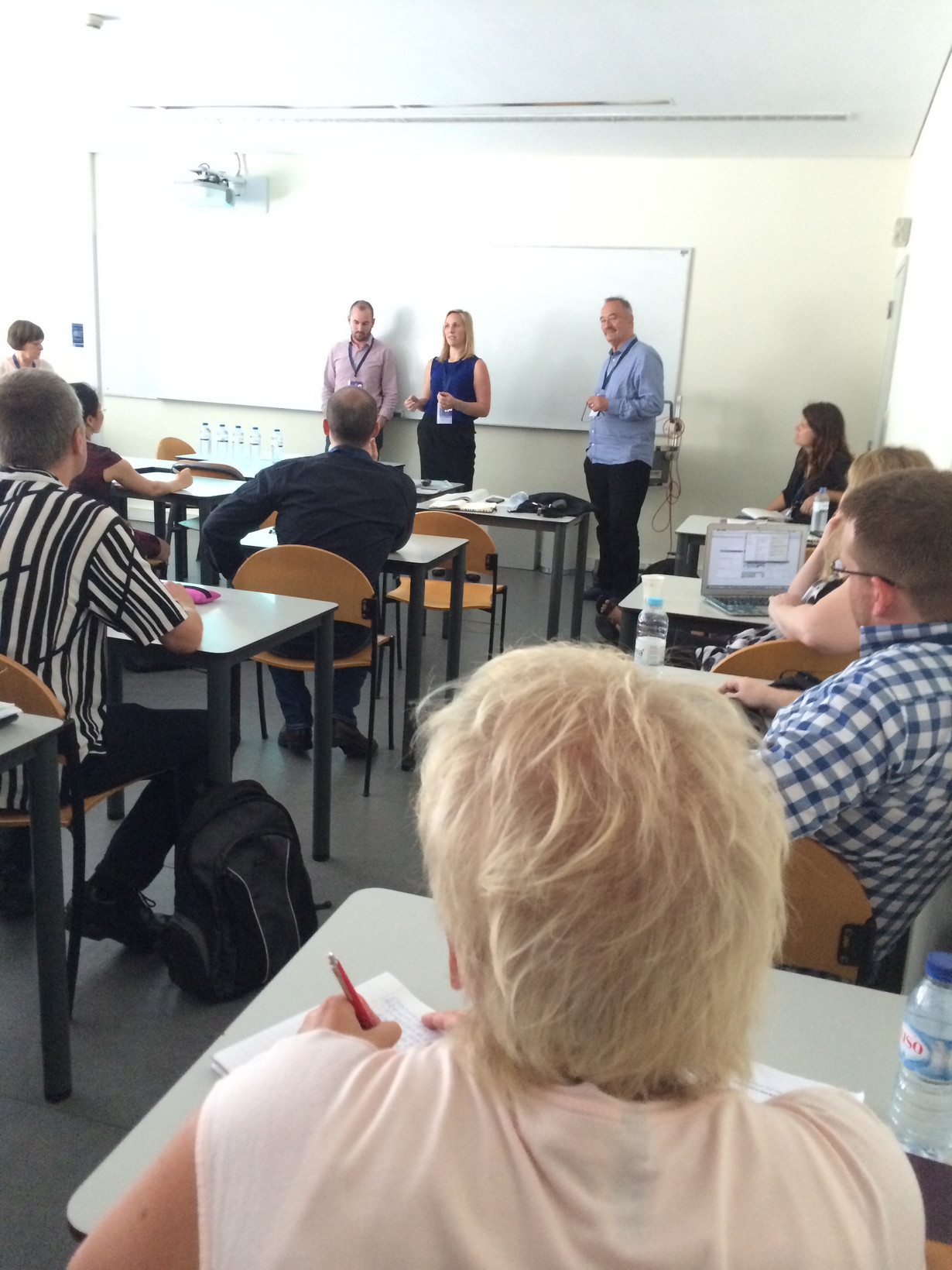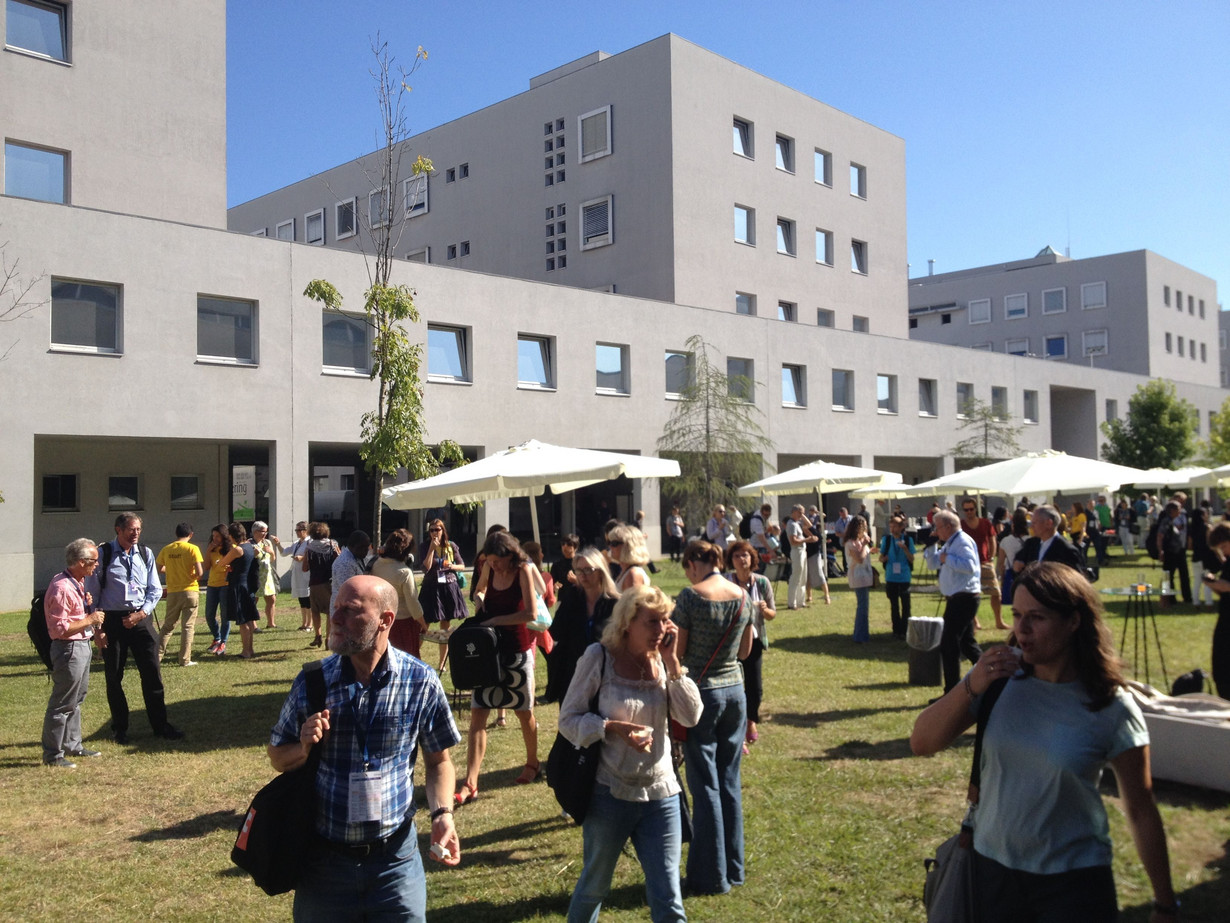Annual Report 2014, Porto



Network 23, Policy Studies and Politics of Education, is one of the larger networks in the ECER conferences. Like previous years, the ECER 2014 conference in Porto-Portugal attracted a large number of educational researchers. The majority of them came from different European countries such as the U.K, Ireland, Iceland, Portugal, Spain, Greece, Italy, France, Austria, Netherlands, Belgium, Denmark, Sweden, Norway, Finland, Germany, Poland, Hungary, Switzerland, Malta, Kazakhstan, Slovenia and Portugal of course. A good number of researchers came from different Australian universities. There were also researchers from other parts of the world, such as Brazil, New Zealand, Taiwan, Turkey, Argentina, U.S.A., Canada, Mexico, South Africa, etc.
NW23 this year had 58 full sessions, with 105 papers, 15 symposia of which 4 were double and one triple (74 symposium papers altogether). One symposium was organised jointly with NW28, “Sociologies of Education”, and one with NW22, “Research in Higher Education”. There were also 1 Round Table, 1 Research Workshop and 1 poster.
Indicative of the thematic focus are the titles of the symposia. Examples are as follows:
- New Public Management and the Modernisation of Education in Europe
- Governing by Expectation: school Inspection and evaluation across Europe and beyond
- Education Policies Concerning Early School Leaving in European Countries: a considerable degree of convergence?
- Elite Education: Historical and Contemporary Perspectives Within Different European Countries
- Youth on the Move – Transitions in times of uncertainty
- Adult Literacies and the Effects of Comparative Performance Measurements: Local, National, Global
Examples of different topics in paper sessions are as follows:
- Policies of standardization in education
- The impact of PISA on national education policies
- School inspection policies and practices
- Mediatization in new regimes of education governance
- Education policies and the politics of equity
- Policies of parental school choice
- Inclusive policies in local education markets
- HE, diversity, inclusion and justice.
- Research Policies and the politics of research
- Education policy analysis: Methodological challenges
- Globalization, privatizations and neo-liberal reforms in education
- Policy reforms and teacher professionalism
- Curriculum policies, democracy and social justice
Presentations in the sessions suggest high quality of research work being done on topics related to the Network. Presentations had very good attendance and provoked lively discussions. Some of the symposia, especially, attracted researchers beyond the network members, that is those that tend to present in our network over several years now.
The ECER 2014 conference was for NW23 very successful in several respects:
- To start with, thanks to all our reviewers – listed in the EERA NW23 website – the reviewing process was smooth. Beyond the minimum of two reviews per contribution, to the extent that it was possible, a third review was provided in those cases where there had been large differences in scores. It was very satisfactory to see that comments tended to be substantive, helping contributors to improve their conference presentations. Furthermore, decisions about acceptance became an easier, more productive and pleasing activity, as this year convenors sought to cooperate even more closely, producing short, written additional reports on papers with disagreements in the reviewers’ evaluations.
- Second, based on the feedback from session chairpersons – to whom we are grateful for their contribution to the success of the conference – and from many other participants during and after the conference, we are pleased to note that the thematic organisation of sessions led to greater coherence, encouraging more focused discussions and allowing participants to attend successive sessions on similar topics, according to their specific interests. As in previous years, emerging educational debates were taken up, and this year’s ECER Theme on “The Past, Present and Future of Educational Research” permeated many sessions, independently of the particular topic addressed.
Third, an important factor contributing to the success of the NW23 conference this year were the activities organised for the entire ECER conference, both those celebrating EERA’s 20th anniversary as well as the other activities, the highlights being the excellent key note speakers’ sessions, several of which were of direct relevance to NW23 concerns. - Finally, the impression from this year’s conference is that ties among participants develop gradually and steadily and that the majority of contributors have a feeling of belonging to the network. At the same time, some participants feel happier to attend sessions from other networks, and so there is a flow of people and ideas between network 23 and other networks, for instance NW 13 and NW 28. We wish to encourage this flow that helps to keep theoretical developments in critical social science and policy analysis always in perspective. Interactions with other networks, e.g. through symposia and paper sessions on issues of mutual interest, are also strongly encouraged.